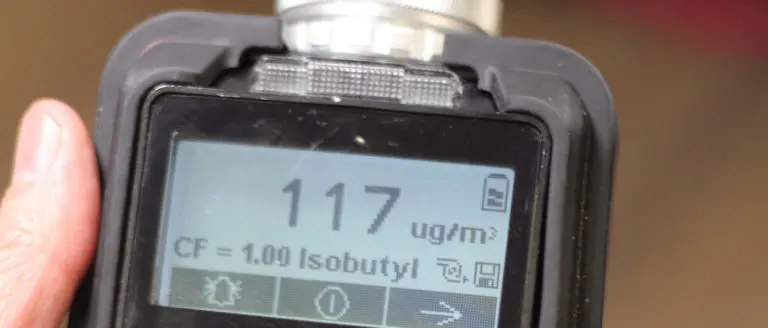Soft Drink VOC Residue Testing
The testing of volatile organic compounds (VOCs) in soft drinks is a critical process that ensures product safety and compliance with international standards. This service targets the detection and quantification of VOC residues, which can have significant impacts on human health and environmental sustainability.
Soft drinks are widely consumed across the globe, making it essential to monitor for potential harmful VOCs such as benzene, formaldehyde, and others that may be present in small quantities. Regulatory bodies like the United States Environmental Protection Agency (EPA) and the World Health Organization (WHO) have established strict limits on these compounds.
Our laboratory employs advanced analytical techniques tailored to this specific testing requirement. We use gas chromatography-mass spectrometry (GC-MS), which provides high sensitivity and selectivity, ensuring accurate detection even at trace levels of VOCs. This method allows us to identify a wide range of organic chemicals present in the sample.
Sample preparation is crucial for reliable results. Our team follows standardized procedures to ensure consistency. Samples are first filtered to remove particulates that could interfere with the analysis. Then, they undergo derivatization if necessary to enhance detection by GC-MS. This step is particularly important for volatile compounds that may not be stable without it.
The testing process involves several stages. Initially, we receive the sample and document its condition thoroughly. Next, we perform initial checks such as pH measurement and visual inspection. The sample is then prepared according to the specified protocols. Once prepared, the sample undergoes analysis using GC-MS. After the test run, the data is processed, and a detailed report is generated.
Our laboratory adheres strictly to international standards for this testing, including ISO 17025:2017 accreditation, which ensures that our methods are robust and reproducible. Compliance with these standards is crucial in maintaining credibility within the industry and ensuring trust among clients.
The results of VOC residue testing play a pivotal role in quality control processes. They help manufacturers identify any potential issues early on, enabling them to take corrective actions promptly. For regulatory compliance purposes, these test results are indispensable for meeting stringent legal requirements.
Understanding the composition and presence of VOCs in soft drinks not only aids in product safety but also supports sustainable practices. By reducing the use of harmful compounds, manufacturers contribute positively to environmental conservation efforts.
Scope and Methodology
| Test Parameters | Description | Method | Acceptance Criteria |
|---|---|---|---|
| VOC Identification | Detection of specific VOCs in soft drinks. | Gas Chromatography-Mass Spectrometry (GC-MS) | Identification based on retention time and mass spectrum match. |
| VOC Quantification | Quantitative measurement of identified VOC residues. | GC-MS with internal standards or calibration curves. | Quantitation within ±10% accuracy compared to standard solutions. |
| Sample Preparation | Filtering and derivatization if necessary. | Standard protocols as per laboratory SOPs. | No more than 5% variation in sample preparation across batches. |
| Data Processing | Analyzing raw data from GC-MS to generate final reports. | Software-specific algorithms and manual review. | Reports must include all detected compounds with their respective concentrations. |
| Report Generation | Compilation of test results into a comprehensive report. | Template-based, standardized format. | Compliance with ISO 17025:2017 reporting guidelines. |
Why Choose This Test
Choosing VOC residue testing for soft drinks is not just a compliance requirement but also a strategic move that enhances product safety and brand reputation. By partnering with us, you gain access to state-of-the-art facilities and experienced professionals who are dedicated to delivering accurate and reliable results.
The test ensures that the products meet all relevant standards set by regulatory bodies worldwide. This includes adherence to EPA guidelines in the United States and WHO recommendations globally. Our rigorous quality control measures provide peace of mind, knowing that your product is free from harmful VOCs.
From an operational standpoint, this testing helps streamline production processes. Early detection of potential issues allows for timely adjustments, minimizing waste and maintaining consistent product quality. Furthermore, it supports continuous improvement initiatives aimed at enhancing overall manufacturing efficiency.
The environmental benefits are equally significant. By ensuring that soft drinks do not contain harmful VOCs, you contribute to a cleaner environment by reducing pollutants in both production facilities and end products.
Our commitment to excellence sets us apart from competitors. With years of experience and cutting-edge technology at our disposal, we offer unparalleled service quality. Whether you are looking to comply with regulations or improve product safety, our expertise ensures that your needs are met effectively and efficiently.
Competitive Advantage and Market Impact
In today's competitive market, standing out requires more than just meeting basic standards; it involves setting higher benchmarks for quality and safety. By incorporating VOC residue testing into your quality control protocols, you position yourself as a leader in the industry.
Our comprehensive approach to VOC testing provides a unique advantage by offering a holistic view of potential risks associated with soft drinks. This includes not only identifying harmful compounds but also understanding their sources and contributing factors. Such insights enable proactive measures that can prevent future issues from arising.
The market impact of reliable VOC residue testing cannot be overstated. Consumers increasingly demand transparency and assurance regarding the safety of the products they purchase. By demonstrating your commitment to these values through robust testing protocols, you build a strong reputation among customers and stakeholders alike.
Additionally, compliance with international standards enhances trust in your brand both domestically and internationally. It signals that you adhere to the highest global standards, thereby attracting more customers who prioritize such factors when making purchasing decisions.





